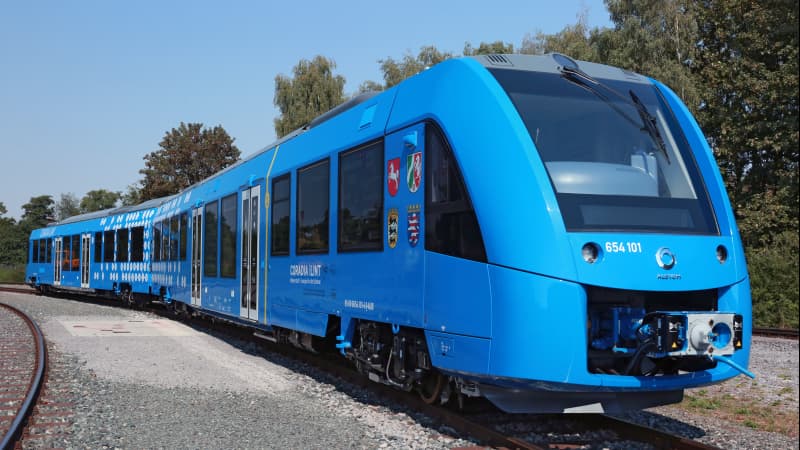First stop on the hydrogen train? In Germany, the first country to operate these trains commercially for a year, the technology is already raising questions and a report even recommends its abandonment.
recollection of facts Almost a year ago, a fleet of 14 regional trains, supplied by the French group Alstom to the region of Lower Saxony, it begins to circulate in the hundred kilometers of the line that unites the cities of Cuxhaven, Bremerhaven, Bremervörde and Buxtehude, not far from Hamburg. A world first.
These new trains are then presented as the solution to replace diesel trains that run on non-electrified lines: 20% of the network in Germany, 50% in Europe, 40% in France, mainly regional. However, the electrification of these lines is not possible given the cost/profitability ratio.
Put an end to diesel trains
Like SNCF, train operators in Germany want to end diesel in the next few years, by 2037 on the other side of the Rhine. The new fleet will avoid generating “4,400 tons of CO2 every year,” LNVG, the regional operator, explained at the time. of the network. A year later, the first results are mixed.
In addition to the higher cost of acquiring trains than conventional trains, a report commissioned by another German state, Baden-Württemberg, suggests an overall long-term operating cost up to 80% higher than using hybrid battery train, For example. .
In Lower Saxony, this not very positive report adds to the operational difficulties observed for a year, in particular to fill the reservoirs in a very short time, in complete safety.
For this reason, the region’s Ministry of Transport has decided to stop buying new hydrogen trains and will opt for “cheaper to operate” hybrid trains (electric and diesel batteries) in its next tender. However, the hydrogen trains currently in circulation will continue to operate.
Hard blow for Alstom
This decision is a hard blow for the French Alstom, leader in the matter and creator of the first hydrogen train, the Coradia iLint. However, the German election is for the moment an isolated case.
France, Italy, Sweden and even Quebec have ordered trains from the French group, as operators need more and more trains to meet demand, and more and more green trains. In France, 12 trains have been ordered for the Bourgogne-Franche-Comté, Occitanie, Grand Est and Auvergne-Rhône-Alpes regions.
But as far as Germany is concerned, the potential for “2,500 to 3,000 diesel trains (that) could be replaced by hydrogen”, mentioned last year by Stefan Schrank, Alstom’s project manager, is fading.
Source: BFM TV


